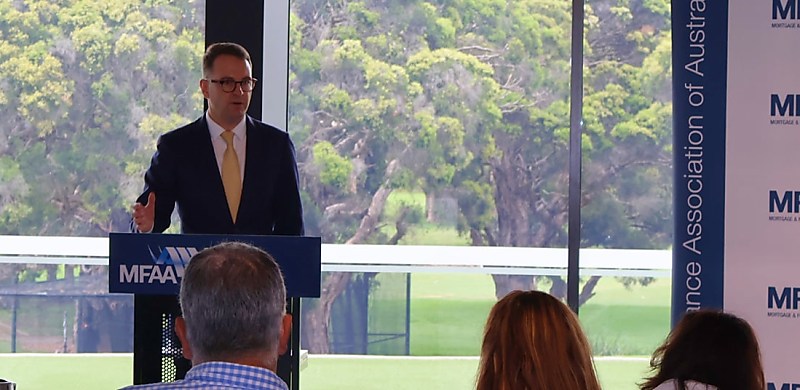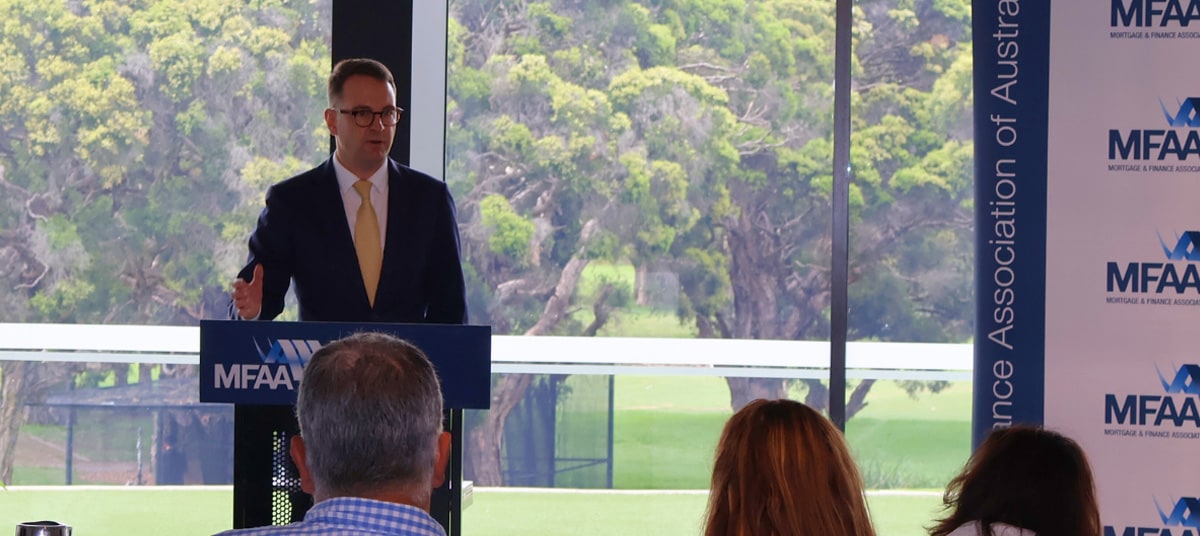
In a meeting with brokers, senator Andrew Bragg has defended the housing inquiry recommendations while acknowledging that meaningful change could be some way off.
The Liberal senator for NSW, Bragg, has addressed mortgage and finance brokers at an event organised by the Mortgage & Finance Association of Australia (MFAA) in Sydney on Wednesday (4 December).
In the breakfast event, Senator Bragg outlined the need to prioritise first home ownership, highlighting the recent recommendations put forward by the Senate’s housing inquiry (which he chaired), including reducing the serviceability buffer for first home buyers.
He lamented what he described as a current “housing crisis”, saying that he believed the Albanese government has “presided over a collapse in supply” and stressed the need for reforms to help first home buyers.
“We [the Liberal Party] are very, very conscious that we want to get the Australian dream back on track,” he said.
Indeed, the senator told brokers that he believed the Albanese government had “abandoned the notion of individual home ownership”, reflecting that the Senate inquiry report was met with opposition from some quarters (a Government Senators’ Dissenting Report to the Senate said that lowering or reducing the serviceability buffer would “load up home buyers with even more debt than they would otherwise be eligible for”).
Senator Bragg said that he wanted to “tilt the scales in favour of first time buyers through the serviceability buffer and also the capital risk weight system,” hinting that there would be more to announce during the Liberal Party’s election campaign.
He told the MFAA members that he believed the 3 per cent buffer was “creating some perverse and ridiculous outcomes”.
Senator Bragg said: “So, we think that the scope for a first home buyer buffer being lower than everyone else makes good sense. And frankly, there’s no way that it could be argued that it would increase any systemic risk as a proportion of the overall book. First home buyers, for many of the large institutions, are sitting at around 10 per cent, so we think it’s a proportionate and reasonable idea that we do this.”
Bragg also defended the recommendation for capital risk weightings to be augmented, saying it was “quite ridiculous” that banks are required to hold more capital for loans with Lenders Mortgage Insurance (thereby making them more expensive) than for loans with a parental guarantee.
“That seems to be preferencing, again, people who have access to the Bank of Mum and Dad. So that was also very, very concerning,” he said.
The Senator revealed the report could have gone further in its recommendations for reforms, saying that he would be in favour of eventually giving Parliament the power to overrule some APRA decisions, including changes to the serviceability buffer for first home buyers, subject to parliamentary debate.
The value of brokers
When asked by The Adviser what role brokers play in supporting first home ownership in Australia, Senator Bragg was swift to highlight the value they provide borrowers.
“Brokers do a great job of offering affordable mortgage options. They have got a best interest duty, and I think they are great in giving that competition in the market,” he said.
“If there are ways to improve competition from the mortgage broker point of view, then that’s a separate conversation that we’d be quite open to looking into.”
What’s next?
Despite the sweeping recommendation made in the Senate inquiry, Senator Bragg said that the impending election could result in no meaningful change.
He told The Adviser: “If we [the Liberal party/Coalition] win the election, it’ll be our policy. If Labour win the election, they won’t do any of this.”
The Liberal senator said that – should Peter Dutton assume power following the 2025 federal election (scheduled to take place by May 2025) – the report recommendations would be considered.
“I’m confident of getting a very good hearing there, because Peter [Dutton] understands how important it is that we have policies which are practical and policies which can be implemented straight away, if we are fortunate enough to be elected to government next year,” he said.
However, he added: “It’s got to be considered by our internal process and then there’ll be an announcement in due course. I don’t make that, somebody else does.”
[Related: Senate inquiry recommends reducing 3% serviceability buffer]

